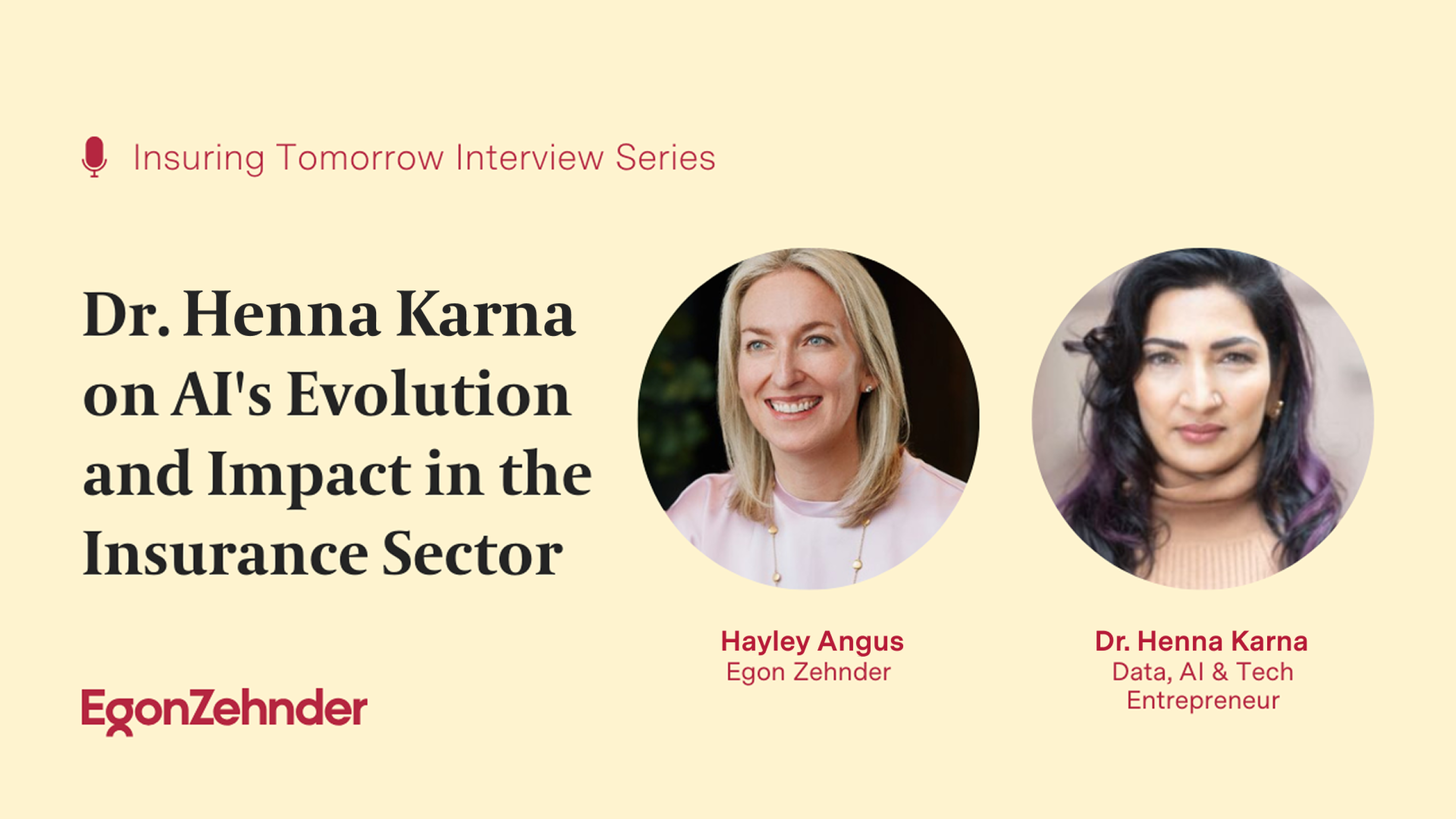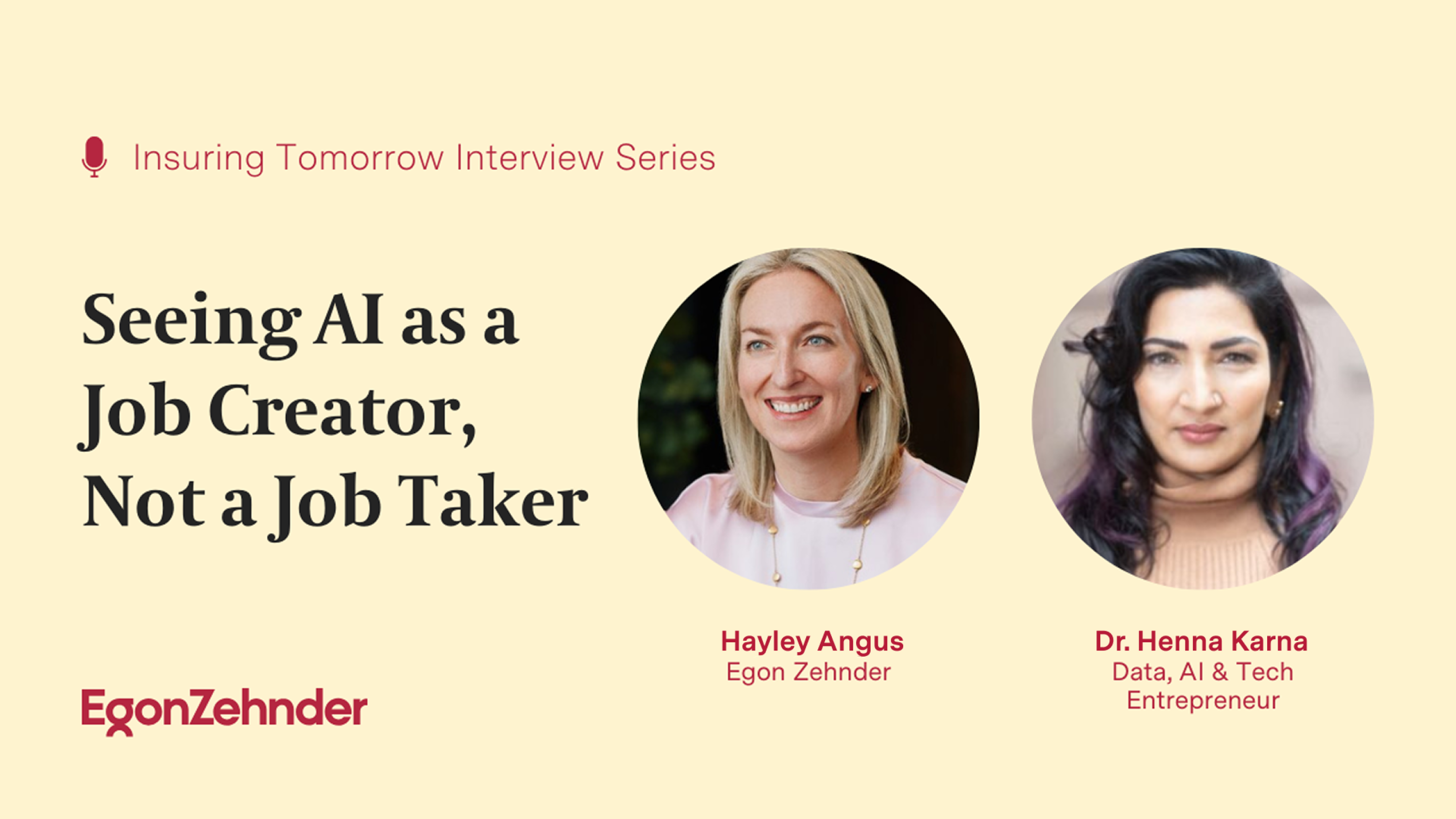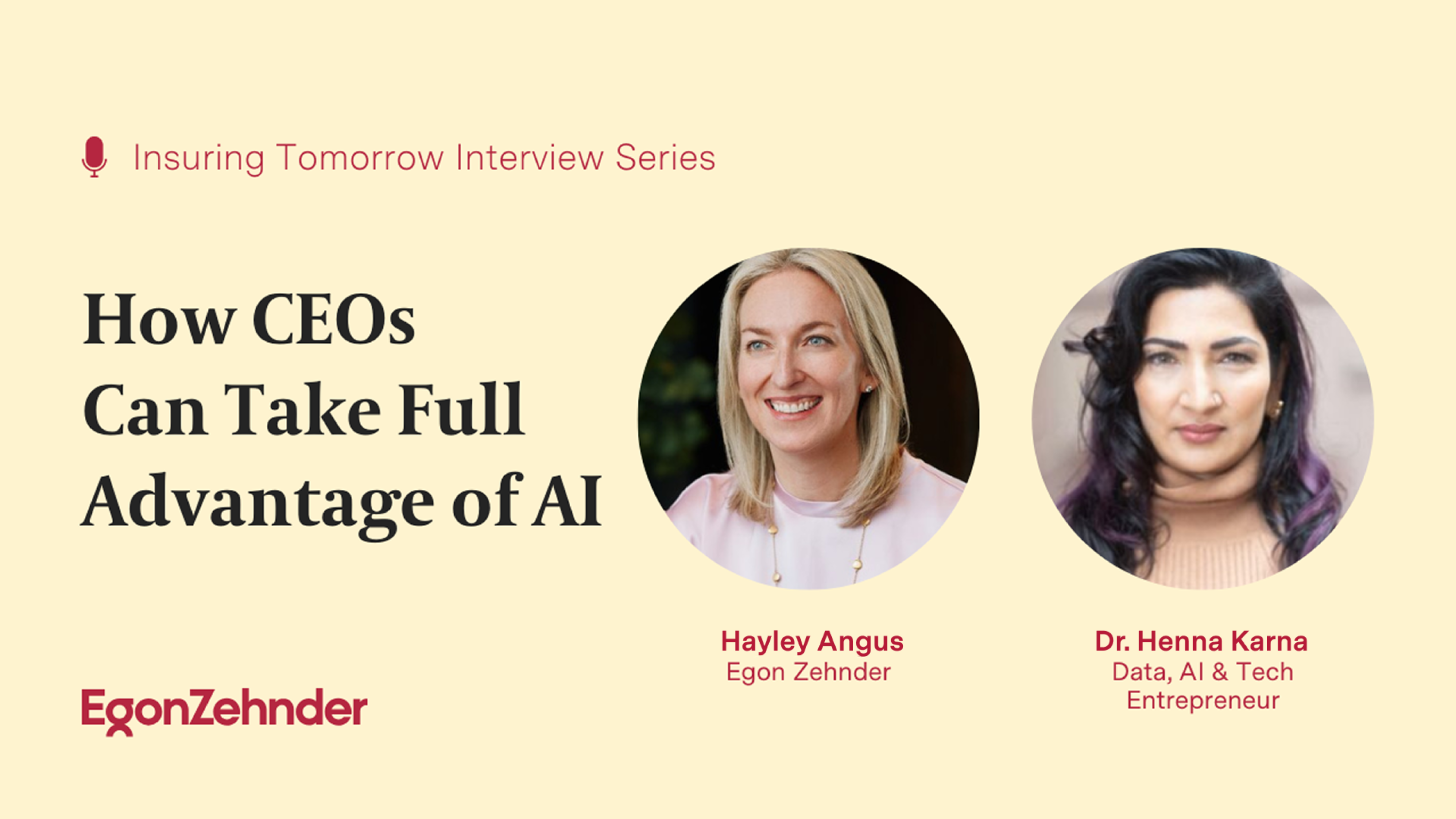Dr. Henna Karna, a mathematician and artist, focuses on bridging AI, data, and analytics with talent development for leaders and organizations. With extensive experience in insurance and technology, Karna shares insights on maximizing generative AI in companies and its transformative impact on the insurance industry.
How did your career in the insurance industry begin, and what drew you to AI?
I am a mathematician by training, a former actuary, and have been involved in AI since 1996—much earlier than most people might expect AI was around. Throughout my career, I've been in and out of the insurance industry for nearly 27 to 28 years, always drawn back by the exciting opportunities in the risk space. While technological advancements in the field have been incremental so far, we are now entering an era that can propel us forward more rapidly toward our goals.
How have you seen AI evolve over your career?
I worked for the government at the time, and a lot of the things that we were doing in my group were to understand human beings and human behavior, which then spun out to be this whole world of behavioral science, and these whole new majors and new degrees that are now in that space, which didn't exist in the 90s. The algorithm we were using was very technically grounded, but artificial intelligence—along with elements of machine learning and natural language processing—has been around for a long time. Now, we're at a point where it's like having it at our fingertips. I think before, it wasn’t obvious to me that we would be able to use it for layperson activities—like figuring out how to tune up my car or improving the quality of a letter that wasn’t written well enough. But I remember thinking that it's going to change the healthcare industry even then.
How is AI creating new or different roles within the insurance industry?
There’s a lot of noise in the system around finding the right way to think about it for our colleagues and organizations. Insurance, as you know, is mission-driven. While many industries might claim the same, insurance, in particular, serves as a safety net—that’s the heart and soul of this industry. However, when we reflect on that and how we've responded so far, we can see there’s still a lag. There is a lag in our industry and a gap—not just the well-known protection gap, but also the disparity between recovery time and the quality of recovery. In the AI era, which stands apart from the Internet, mobile, or social eras, the power shifts more toward us—toward the end user. It’s a new level of empowerment through data knowledge and the ability to quickly interpret information.
What steps can companies take to ensure that their workforces are elevated to higher levels of engagement, thinking, and collaboration using AI?
AI is going to transform our daily work. Our task is to make our workforce AI literate and enabled. That’s the job in front of us. We operate in a complex industry flooded with information, from IoT sensors to climate data. While this will bring great value, it's not about worrying over lost jobs—it's about focusing on the new roles AI will create. The skills we currently have may not align perfectly with AI, but hiring too many external AI experts who lack industry-focused knowledge could lead to unnecessary challenges.
Instead, we should complement our existing workforce with domain-specific AI experts and focus on comprehensive training. AI has its own taxonomy, just like fiber did, and understanding it needs to be a company-wide effort. So, first and foremost, let's train our people.
How can CEOs and other executives ensure that they are proficient users of AI? What should they be learning about?
I recently attended a presentation on AI for board and C-level executives at the National Association of Corporate Directors. A key takeaway was how important it is to quickly grasp AI concepts to stay relevant and useful in leadership roles. As board members, we want to contribute effectively, and understanding the day-to-day use of AI helps alleviate personal fears and concerns. Using tools like ChatGPT or Claude ourselves can demystify the technology.
Another important point is to eliminate fear. At Harvard, we're developing an executive program focused on the ethics of AI for senior leaders, helping them prepare for the inevitable changes ahead. The best way to face this future is by trying AI tools in a safe space. Because there are going to be changes coming our way. So, if the only way to respond to that fear is to try—go try it out in a safe space. Let’s get rid of the fear.
If you were to leave the insurance industry with one piece of advice for taking full advantage of AI, what would that be?
The grass isn’t always greener on the other side. We often think we need to hire AI experts or learn from industries like CPG. But the truth is, we aren’t new to data efficiency, maturity, or knowledge. Our industry has evolved repeatedly over time. People may say we're outdated or behind the times—'Isn't the insurance industry quite behind?' they ask. But the fact is, the world has been safer because of it for the past 300 years. So, maybe it’s time to respect our own people and focus inward, helping everyone grow within the company. This is an evolution, not a revolution. Real change happens when we evolve from the inside out, rather than looking for solutions only from the outside.








